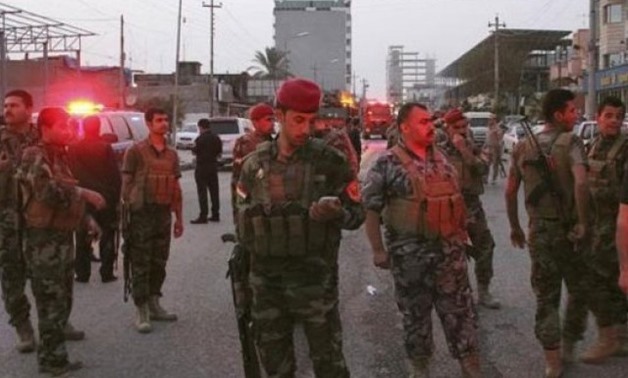
Kurdish security forces gather at the site of a bomb attack in Erbil, the capital of Iraq's Kurdistan region, April 17, 2015. PHOTO- Courtesy to REUTERS
CAIRO - 12 September 2017: Although the relations between Turkey and Iran have been tense for years, Tehran and Ankara now appear to be drifting into a tenuous strategic alignment against the Kurds.
According to scholar Daniel Pipes, this is a significant development. For hundreds of years, the two countries have competed for territory and influence throughout the expanse of the Middle East and Eurasia.
Despite the huge current trade link between the two countries, the hostility continues between them as the leaders of Iran are concerned about Turkey's role in NATO and reject Turkey’s engagement with countries in the Caucasus and Central Asia as Tehran itself covets.
On the other hand, Turkey is increasingly concerned about Iran's growing activity in the Middle East region to an extent that prompted it to it begin building a “security wall” along part of its border with Iran.
In mid-August, Iran’s Chief of General Staff Mohammad Hossein Bagheri paid an official visit to Ankara in which the two countries signed an agreement to expand military cooperation between the two countries against the Islamic State (IS) in Syria.
This agreement evidently was about a completely different issue: the independence of the Kurds in Iraq.
The Iraqi Kurdistan independence referendum which is scheduled to take place in September 2017 raises the fears of Tehran and Ankara.
The Iraqi referendum came to mark the culmination of building a "Kurdish movement" propelled by the increasingly assertive - and effective - role that has been played by Kurdish Peshmerga militias in the fight against the Islamic State.
Over the past three years, these guerrillas have been distinguished as some of the most capable forces in the anti-ISIS fight. They have received appreciation from the United States and many other powers.
In turn, this issue spells trouble for Turkey and Iran, both of whom have sizeable Kurdish minorities of their own. (Kurds are estimated to account for nearly one-fifth of Turkey's 80 million-person population, and more than 10 percent of Iran's nearly 83 million citizens.) As a result, Ankara and Tehran justifiably fear that the movement for self-determination by Iraq's Kurds could spark similar momentum among their own Kurdish contingents.
According to Al-Hurra newspaper, such worries have led both countries to enhance their efforts to suppress potential Kurdish irredentism within their own borders. Thus, as part of its ongoing purge of political opponents in the aftermath of last year's failed coup attempt, the government of Turkish President Recep Tayyip Erdogan has taken pains to tighten already onerous limitations on the practice of Kurdish culture and traditions.
Iran is doing much the same as Turkey’s Kurds’ experience: "repression by the judiciary and security services."
These measures might be just the beginning. Given their historical animus, an enduring alliance between Turkey and Iran simply is not in the offing. Yet, as recent developments suggest, shared fears of Kurdish empowerment could well push Tehran and Ankara into temporary tactical alliance around countering the Kurds.

Comments
Leave a Comment